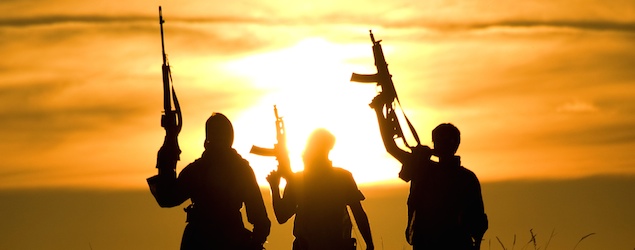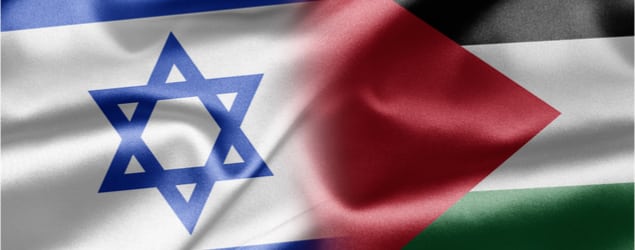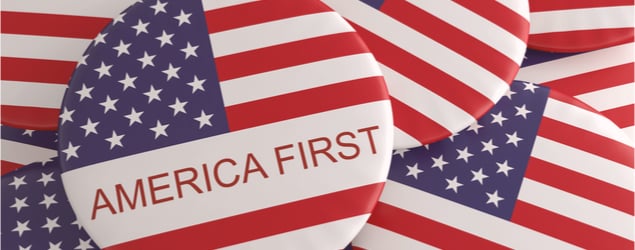Ignoring the Islamist Menace

Did you catch those breaking news reports, right after the San Bernardino shooting, suggesting that the attack was work-place violence? You might chalk that up to off the cuff speculation. Yet there was a kind of desperation behind the insistence on finding some generic, non-ideological motive. Yet it turned out to be what many expected from the outset, a jihadist attack; one of the murderers had pledged allegiance to ISIS.
Think back to the mass shooting at Fort Hood, Texas, in 2009. Officially, it was played down as workplace violence. Yet Nidal Hasan, a psychiatrist serving in the U.S. Army, viewed himself as a “Soldier of Allah.” When he gunned down thirteen people on the base, he shouted “Allahu Akbar.”
Which brings us to the recent murderous ambush of a Philadelphia police officer, while he was sitting in his patrol car. The assailant shot at the officer at close range, inflicting serious injuries. Why?
“This was a criminal with a stolen gun” the Mayor of Philadelphia insisted at a press conference. “In no way, shape or form does anybody in this room believe that Islam or the teaching of Islam” is connected with the attack. And yet:
[I]mmediately after the mayor’s pronouncement, the commander of the police department’s homicide unit calmly took the microphone. Capt. James Clark reported that the shooter (later identified as 30-year-old Edward Archer) had said, repeatedly, that he followed Allah, that he pledged allegiance to Islamic State and “That is the reason I did what I did.”
By now the pattern is familiar. We can see a determined reluctance, flowing into outright refusal, to acknowledge the Islamist menace. Reflecting on this phenomenon, Dorothy Rabinowitz of the Wall Street Journal lays the blame at the doorstep of the White House:
Years of effort by this administration to deny, conceal and sermonize the nation out of its awareness of facts clearly evident to them is the sort of thing that doesn’t escape Americans in this election season, shadowed by the threat of terrorism.
Without question, the current administration has outdone itself in dodging the issue. I talked about that a while back (here and here). But the problem is broader than Obama’s policy, and it predates the current administration.
For years the smear of “Islamophobia” has worked to dampen serious discussion and critique of the Islamist movement. To find the Intellectuals and scholars and journalists vigorously shouting down any such discussion, look to the Left. Sam Harris has insightfully exposed the dishonesty of that smear, and the hypocrisy of Leftist intellectuals who profess to uphold freedom and progress yet function as apologists for barbarism.
Now, even Michael Walzer, an influential left-leaning political theorist, is tired of this refusal to confront Islamists. Writing in Dissent, a pillar of the left-wing intellectual establishment, Walzer admonishes his brothers-in-arms. “I frequently come across leftists who are more concerned with avoiding accusations of Islamophobia than they are with condemning Islamist zealotry.” Consequently, many are unable to “consider the very good reasons for fearing Islamist zealots — and so they have difficulty explaining what’s going on in the world.” It says a lot about the gravity of the problem that Walzer was moved to write this lengthy article. (I hesitate to recommend the article, because although it has some value, there’s much to disagree with.)
At this point, you might form the impression that the refusal properly to identify and define to the Islamist movement (let alone criticize it) is confined to leftist politicians and intellectuals. Not so
George W. Bush took every opportunity to evade the nature of Islamic totalitarianism. While the ruins of the World Trade Center were still blazing, he gave speeches underscoring his belief that “the terrorists have no home in any faith.” On and on he went, hammering at that theme, despite all the evidence to the contrary. For instance: The 9/11 ringleader had written a note telling his team how to prepare themselves: “Remember that this is a battle for the sake of God. As the prophet, peace be upon him, said, ‘An action for the sake of God is better than all of what is in this world.’ . . . Either end your life while praying, seconds before the target, or make your last words: ‘There is no God but God, Muhammad is His messenger.’”
For at least the last fifteen years we have lived amid an intellectual smog — combining self-induced mental fog and the pollution of dishonesty. One effect is to hinder our understanding of the character and aims of the Islamic totalitarian movement. Another effect is evident in certain reactions to San Bernardino, Fort Hood, Philadelphia and other attacks. In these we can detect the workings of a kind of political taboo, whose purpose is to discourage us from thinking about the Islamist movement at all.
For how much longer can we allow that taboo to go unchallenged?
(Originally published on Times of Israel.)









